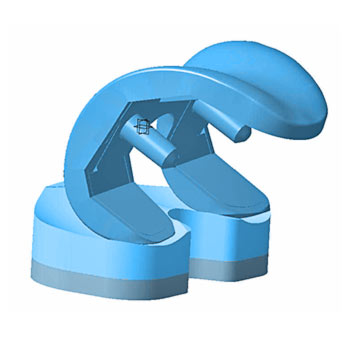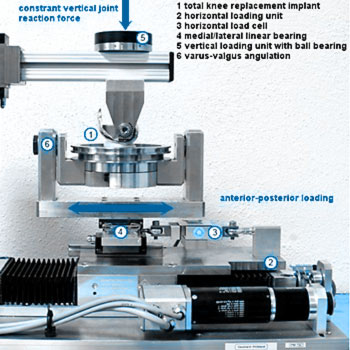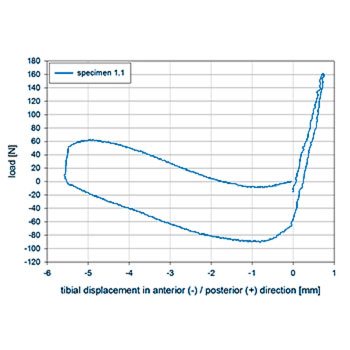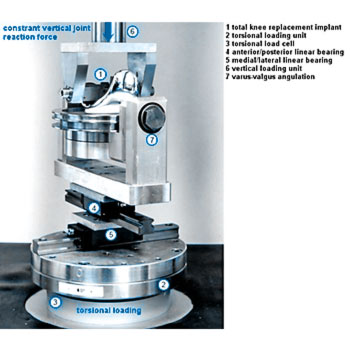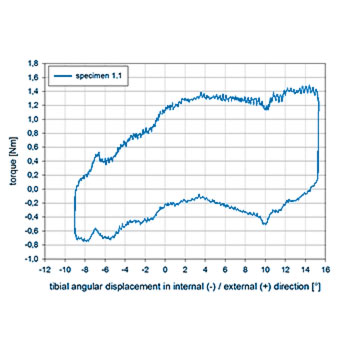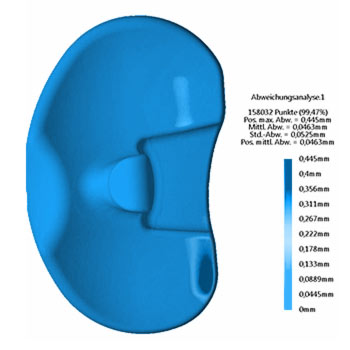Fatigue Test under High Flexion - ASTM F2777
Normative References
ASTM F2777: Standard Test Method for Evaluating Knee Bearing (Tibial Insert) Endurance and Deformation Under High Flexion
This test method evaluates the endurance and deformation properties of artificially aged UHMWPE tibial inserts used in total knee replacement systems. A maximum flexion angle and a tibial insert rotation around the superior-inferior axis must be selected for this test. The worst-case creep performance is determined after dynamic loading.
The gap alternation between the tibial baseplate and insert is measured before and after the high flexion fatigue test to evaluate the creep performance. Additionally, an “A-P Draw Test” and a “Rotary Laxity Test” (according to ASTM F1223) are performed before and after fatigue testing and compared with each other.
Subsequently, the post-fatigue deformation is determined utilizing 3D scans.
